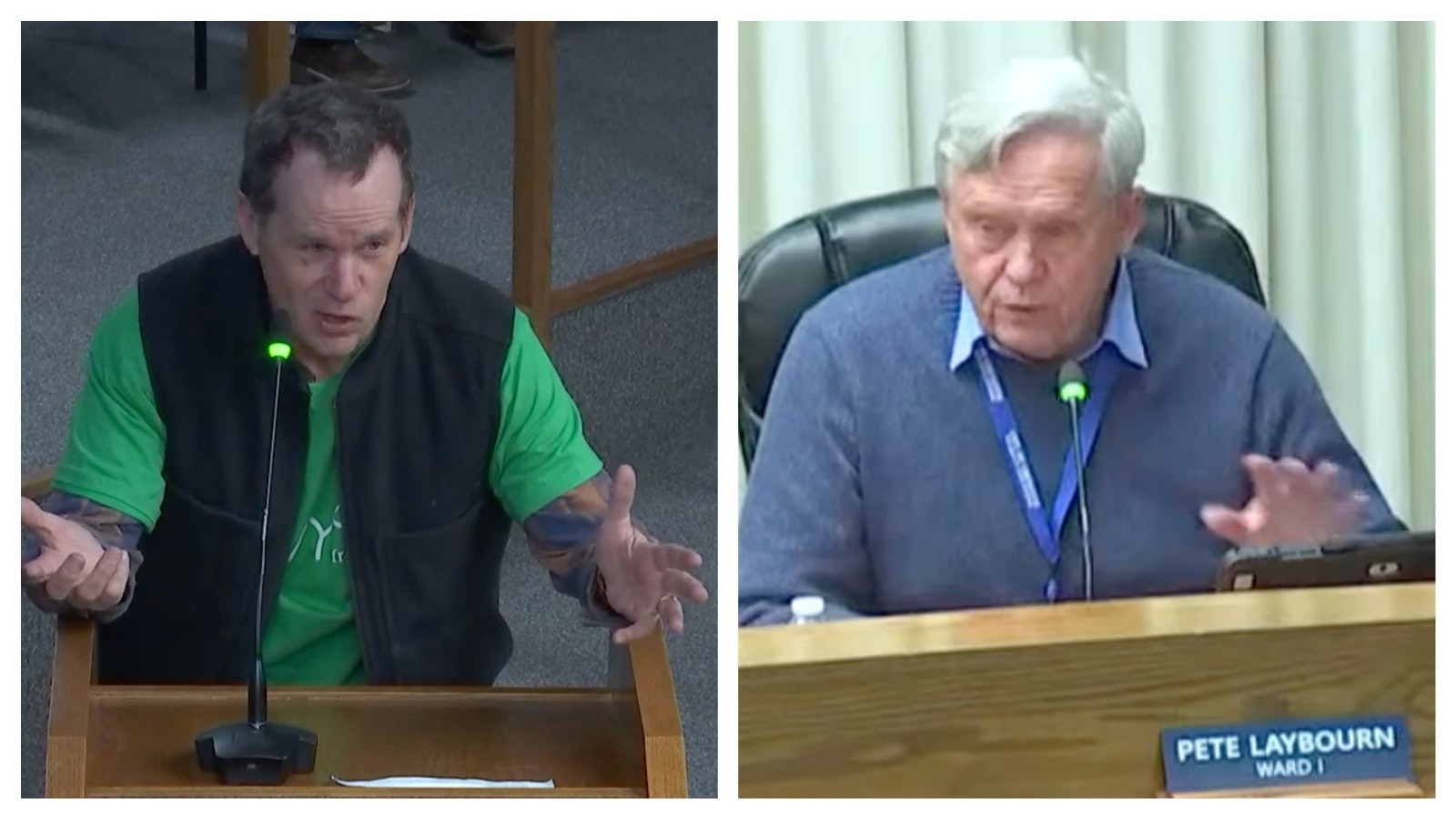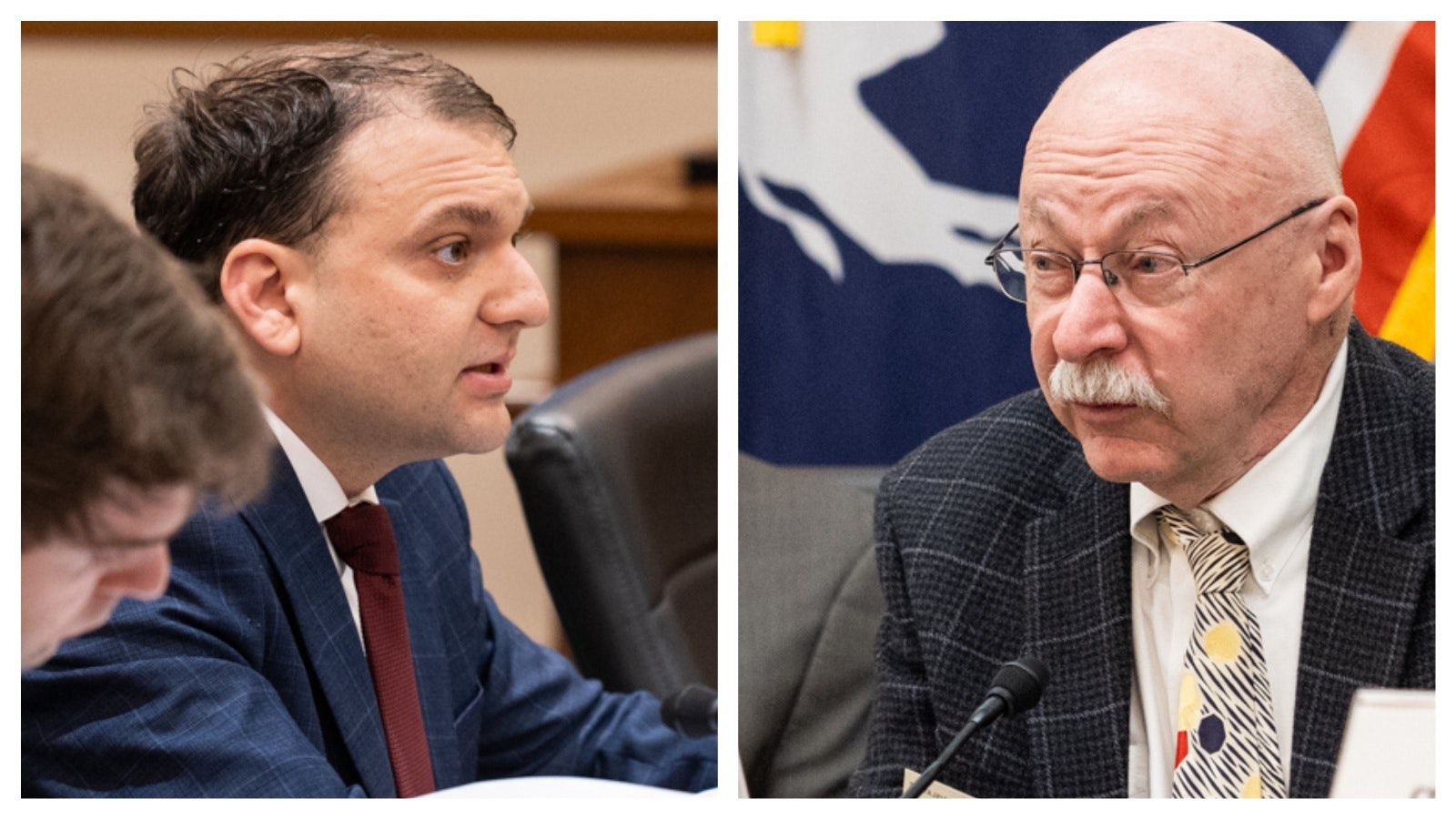A handful of Wyoming Republican lawmakers are asking the state’s judges and justices run for election again.
For 52 years, Wyoming governors have been choosing judges from three-person finalist pools, which committees comprised of lawyers and non-lawyers put before them.
If the voters dislike a judge, they can vote not to retain him. That starts the appointment process over from scratch. It is rare for voters to oust a judge with a “no” retention vote in Wyoming.
House Joint Resolution 6 seeks to change the system and make judges and Wyoming Supreme Court justices run for election.
Numerous private attorneys who spoke to Cowboy State Daily on Friday cast the idea as foolish. The Wyoming County and Prosecuting Attorneys Association also opposes it, the group’s president Tucker Ruby told Cowboy State Daily.
And the man most responsible for launching Wyoming’s current system of appointing judges in the early 1970s said the appointments system should stay in place.
The resolution’s sponsor, conversely, said it’s time for the public to know more about judicial candidates and to be involved in their selection.
To become law, HJ 6 would have to win a two-thirds vote in both House and Senate, then win a majority voter approval at the 2026 general election.
‘First, Transparency’
Freshman state Rep. Mike Schmid, R-La Barge, is the lead sponsor on HJ 6 and a staunch advocate of its principle.
“First, transparency,” wrote Schmid in an email listing his reasons for bringing the resolution. “Everything about the process is completed behind closed doors and secretive.”
The judicial nomination panel chooses three candidates from all the applicants and announces those names to the public as they forward them to the governor.
“No one knows who applied, or how the three finalists were selected,” wrote Schmid, adding that the committee doesn’t make known any “objective criteria” it uses to advance the best candidates.
It’s about having good references and good affiliations, he argued.
Schmid said the voters don’t know enough about their judges to make an informed choice when their names surface for retention, or non-retention, on the ballot.
“Involved citizens are frustrated because there is no way for them to access information sufficient to determine whether a judge is doing well or poorly,” wrote Schmid. “Elections would solve this problem because opposing candidates would campaign against the incumbent judge, and the public would benefit from the debate and be in a much better position to make the correct decision.”
Schmid said judges shouldn’t be political, but they are anyway.
“The system is broken,” he wrote.
Brace Yourselves
If this measure passes, Wyomingites should get ready for out-of-state money to choose their judges, Casper-based attorney and former chair of the Wyoming Judicial Ethics Commission Scott Ortiz told Cowboy State Daily on Friday.
The state’s appointments system is the envy of other states, he said.
In open elections, candidates who can raise the most money often win, which drives the cost of elections up higher and higher, calling in larger and more powerful interests, he added.
“You could have every lawyer in the state give you hours of anecdotal stories of the hellholes around the country, where judges are so biased against certain industries, or certain individuals, because of who got them elected,” said Ortiz. “It virtually makes it impossible to have a fair trial.”
And due to the influence of “dark money,” there’s no telling what interests will back which judges and why, he added.
The co-sponsors of HJ 6 might be in for an unpleasant surprise, he added.
“The groups pushing this kind of change will be surprised — that it would not bring about the result they think it would,” said Ortiz. “Because you never know what political action groups have money, and what their agendas are.”
Here In Mexico
A Casper bankruptcy attorney who has been living in Mexico for the winter said he can see a stark difference between Mexico’s elected judiciary and Wyoming’s appointed one.
And to Patrick Hunter, the election resolution is a “horrible idea.”
“We need a judicial system which is a firm guardrail against the ebbs and flows of the political system,” said Hunter, adding that the judiciary is meant to be “the bulwark which protects the citizenry against the movements of extremism that don’t endure the test of time and good judgement.”
Ryan Semerad, owner of Fuller and Semerad Law Firm, emphasized that political races are run on promises.
But judges are supposed to broach issues impartially, not with a duty to fulfill to any one party.
“Doing justice is not about making people happy. It’s about being fair,” said Semerad.
He also noted that in many places with elected judges, the lawyers whose cases they adjudicate donate to their campaigns.
‘This Is Crazy’
In 1971, a Republican lawyer from Park County brought a resolution to the Wyoming House of Representatives to stop making judges run for election.
Then-Rep. Al Simpson would later go on to represent Wyoming in the U.S. Senate for nearly two decades. But at that juncture he was teaming up with Sheridan Republican Rep. Lawrence Yonkee and Cheyenne Democratic Rep. Edwin Whitehead — both attorneys as well — to align Wyoming more closely with the federal government’s system of appointing judges.
The Wyoming Legislature passed Simpson’s resolution, and in 1972 the voters approved it.
Simpson had been watching judges campaign, touting their beliefs on signs and clinging to political movements. Older and experienced judges would lose their seats to the political wave of the day, he told Cowboy State Daily on Friday.
“I thought, ‘This is crazy,’” he recalled. “There’s enough politics going on already.”
Political campaigns were already governed by polarized, partisan thinking then and they are even more so now, he said.
The modified Missouri plan Simpson urged into practice in Wyoming has now been in place for 52 years.
“I don’t see any reason to change it,” he said.
What We Can’t See
Phil Nicholas was just 18 when Wyoming started appointing its judges. He would later go on to serve in the Wyoming Legislature and serve as its Senate President.
But he remembers the switch and the debate well, since his father Jack Nicholas won two six-year terms to serve as a district court judge.
The late Jack Nicholas favored the elections system, Phil Nicholas told Cowboy State Daily.
As for Phil Nicholas, he’s torn. But if he could keep massive spending and dark money out of Wyoming’s judicial elections — a wish that federal precedent stymies — he’d favor the elections system, he said.
People opposed to the appointment system in the early 1970s argued that the people wouldn’t really know their judges under it. There could be no real assurances that the nominating committees and the governor would choose judges on merit, just as there could be no assurances that the voters would.
But at least the choosing would be out in the open for the voters to see, under the elections system, the pro-election crowd argued at that time.
“No one could ever know exactly why somebody became judge, or what their philosophy was,” Nicholas related from the arguments against appointment. “Because there’s no election process to vet them.”
For people in Jack Nicholas’ camp, the idea of such private selection was murky and daunting. It appeared it would favor government employees and friends of high-placed government officials or donors.
“If you wanted to become a judge you had to know whom to suck up to,” the pro-election side feared at the time, Nicholas recalled.
Conversely, the advocates for the appointment process argued that the voters might not choose the most qualified jurist. They may vote for “the most colorful” candidate without considering impartial law, he said.
Half-Century Later
Looking back on the past 52 years, Nicholas, who is now 70, said the modified Missouri plan isn’t perfect.
“We have instances where many of us, many people, believe that there was a candidate who was head and shoulders the strongest legal mind — who didn’t even make it through the committee,” he said. “Or who made it through the committee and was not the final selection.”
The system does seem to attract former government employees, Nicholas related from “criticisms” he’s heard from peers.
But, he added, out-of-state money has been pouring into Wyoming’s political elections at increasing rates in recent years, driving up the cost to run and edging out people who can’t afford to run.
It’s troubling to picture that influencing the judiciary, said Nicholas.
“It concerns me that you’d turn into a state where people would spend a million dollars to elect a judge,” he said.
And yet, Nicholas added, people should have more control over judicial selection than they do now.
“The politics the voters see and participate in, are more healthy than the politics they can’t see,” he said.
Co-sponsoring HJ 6 with Schmid are Republican Reps. Marlene Brady (Green River), Gary Brown (Cheyenne), Ann Lucas (Cheyenne) and Darin McCann (Rock Springs); and Republican Sens. John Kolb (Rock Springs) and Laura Pearson (Kemmerer). Except for Kolb, all the resolution’s sponsors are freshman legislators.
Clair McFarland can be reached at clair@cowboystatedaily.com.





